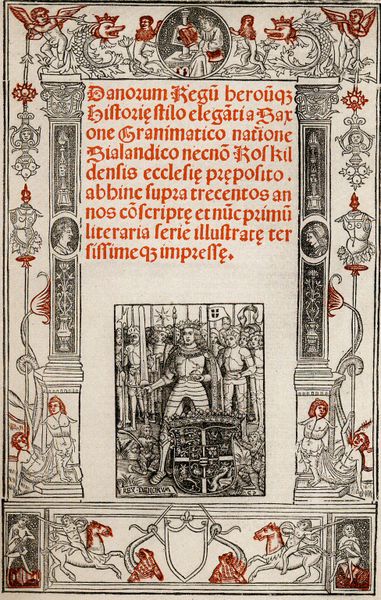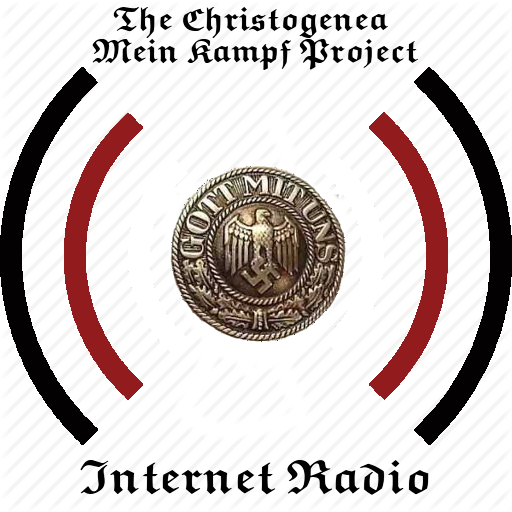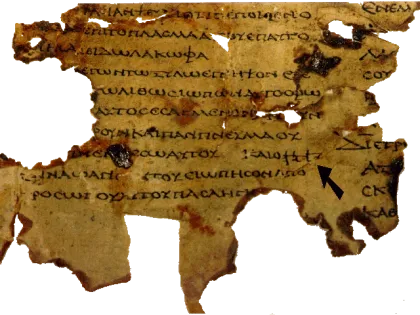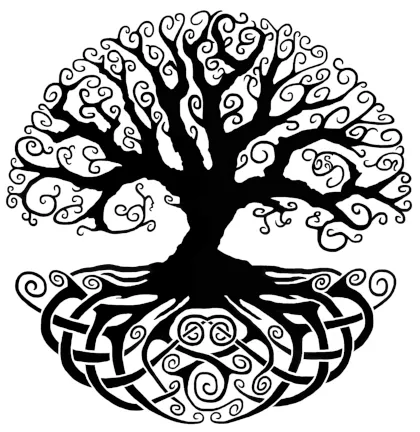Search form
November 2019
100 Proofs the Israelites were White, and a review of The History of the Danes by Saxo Grammaticus by Sven Longshanks
 This being the weekend of the American Thanksgiving holiday, and any time of the year being an occasion to be thankful to Yahweh our God, we also have many things to be thankful for. One of those, is the number of our friends who have taken it upon themselves to join the cause and do something good. So this evening we are going to do something quite different, which I do not even know that I have done before. We are going to hear from two of those friends.
This being the weekend of the American Thanksgiving holiday, and any time of the year being an occasion to be thankful to Yahweh our God, we also have many things to be thankful for. One of those, is the number of our friends who have taken it upon themselves to join the cause and do something good. So this evening we are going to do something quite different, which I do not even know that I have done before. We are going to hear from two of those friends.
The first is Sven Longshanks of Radio Albion. I owe Sven an apology for this, as several months ago – perhaps in August or September, I made this recording with him which is really his review of an old book, the History of the Danes by 12th century author and theologian Saxo Grammaticus. The review is something of a conversation about the value which Sven found in this work in relation to our Christian Identity studies. [See below for a separate copy of this recording.]
 The second is a recording from a video by EnglishVids (aka TruthVids), who has been a member of the Christogenea Forum for a little over two years now. He has had some success spreading the message of our Christian Identity faith on Youtube and Bitchute and elsewhere, and he just published a video titled 100 Proofs the Israelites were White. It may be more effective in video form, but not all of our listeners can sit and watch a 90-minute video, so I thought it would be useful to present and post the audio format here. [See below for a separate copy of this recording.]
The second is a recording from a video by EnglishVids (aka TruthVids), who has been a member of the Christogenea Forum for a little over two years now. He has had some success spreading the message of our Christian Identity faith on Youtube and Bitchute and elsewhere, and he just published a video titled 100 Proofs the Israelites were White. It may be more effective in video form, but not all of our listeners can sit and watch a 90-minute video, so I thought it would be useful to present and post the audio format here. [See below for a separate copy of this recording.]
I also owe EnglishVids an apology, since he asked me to read through his script and give any feedback I had over a year ago, and the circumstances prevented me, so I never got to doing it. However some other Forum members were able to help him, and he has continually refined this presentation over that period of time. While I will withhold some reservations concerning some of the interpretations, his list of 100 proofs is very good, it is edifying, and I believe that it will be a useful tool for introducing new people to the concept of Christian Identity in the future. So once this is posted at Christogenea, it will be in both audio and video format, and join the other materials in our Christogenea Bible Overview section.
Thank you for listening, praise Yahweh, and I pray you all enjoy this...
Mein Kampf Project Radio Streams

Select podcasts related to the National Socialist struggle against the forces of darkness are now being broadcast on two of our Internet radio streams. Click HERE to listen!
From Yahshua to Jesus: the Evolution of a Name

From Yahshua to Jesus: the Evolution of a Name
In the early years of my Christian Identity studies, I became acquainted with a plethora of wild ideas, and I actually did evaluate them all as best as I could. Some of these came from British Israel writers, and others from more recent Americans such as Rand, Swift or Comparet, and even more recent writers who are still alive today. So with an open mind and with Scripture as my guide, along with various lexicons and many books of classical history and ancient inscriptions, and even many of the so-called apocryphal or pseudepigraphal books, as I studied I had considered just about everything that an Identity Christian could hear.
Among these were the Ephraim-Scepter heresy, and the Noon-to-Noon calendar day heresy, the No-Devil heresy, and all of these Clifton had written essays about before I ever had a chance, because he was also dealing with them for a long time. Both Clifton and my friend Ralph Daigle would send me all sorts of Christian Identity-related materials, and some of it I read for entertainment purposes, while other things I took more seriously. If I ever unpack the three remaining crates of notes and correspondence I had accumulated throughout those years, perhaps I will address some of the things which have merit, or at least those which seem to need further attention because the things they proposed are still in circulation.
Throughout those years, in my studies I naturally came to many conclusions which I did not have immediately, and which had long been debated in Identity Christian circles. Foremost among these were the debates concerning Two-Seedline, the origin of non-Adamic races, the identity of certain of the trees of Eden, and other important topics. Some of the conclusions which I have arrived at over the years actually took years for me to understand, and then even more years to formulate effective arguments based on the supporting evidence.
What’s in a Name?

What’s in a Name?
Identity Christians are sometimes perceived as Judaizers, at least those of us who often prefer to use certain Biblical Hebrew terms in place of more modern English or Greek terms. This is especially true where it comes to the use of certain Hebrew names and titles for the God of Israel, or for Christ. But to me, it is much more dangerous heresy to be a Judaizer in the implementation of certain doctrines and concepts that are really only derivatives of the Old Covenant reliance on ceremonies and rituals, rather than to be called a Judaizer on account of a preference for a couple of names or words. To Judaize is one thing, but to lay claim to a heritage which rightfully belongs to many White Europeans, and which never actually belonged to Jews, is something totally different.
So here we are going to present, and hopefully expand on, a paper written by Clifton Emahiser titled Which Is It, "Lord" Or "Yahweh"? But Clifton really did not write this paper. He only wrote the first paragraph, and the rest was simply a reproduction of an article from the 1910 edition of Encyclopedia Britannica. Then he sent this to me to proofread, in the Spring of 2004, and doing that, I made some brief comments which he then added as a conclusion to the article. Making this presentation, I will rearrange some of those notes this evening, and I will certainly also add many others.
Christogenea.org Chat Room - November 2019 Update
 Christogenea has a new chat room which uses secure, self-hosted open source software. This is a separate resource not connected to our Christogenea.net Voice/Chat Server, which is also still active.
Christogenea has a new chat room which uses secure, self-hosted open source software. This is a separate resource not connected to our Christogenea.net Voice/Chat Server, which is also still active.
Over the years, many of our friends and listeners have listened to live programs and have had fellowship in our Chat. This chat is open to the public and anyone can join, but you must register an email address. You may download a client for Windows, Linux or Mac from Rocket.Chat, or from Apple or Android app stores, and connect to chronos.christogenea.org and join the #chatroom channel, or you can use the web interface which will take you there directly, at https://chronos.christogenea.org/channel/chatroom.
Trolls will be rejected immediately. If you are not an Identity Christian you will be treated according to your fruits, and disinvited if you are only found to be lurking.
Praise Yahweh!
William Finck
On the Gospel of John, Part 37: The True Vine and the Tree of Life

On the Gospel of John, Part 37: The True Vine and the Tree of Life
In our last presentation of this commentary on John chapter 14 we discussed The Way as we saw in verse 6 of the chapter that Christ had declared that He is the Way, the Truth and the Life. So we made the assertion that the way of Christ leads to the tree of life, which, to put it simply, is Christ Himself. Then, because He had also said in verse 15 of this chapter that “If ye love me, keep my commandments”, an admonition which He repeated several times throughout His discourse on this evening before He was crucified, we may discern that the keeping of the law represents the way to Him. As we also explained, this is the significance of the cherubs which, as it is described in Genesis chapter 3, were at first set to “keep the way of the tree of life”. So the cherubs had protected that path to Christ, as they were later seen aside the mercy seat which was atop the Ark of the Covenant wherein the tablets of the law were kept. That mercy seat represented the ultimate judgment seat of Christ, where Paul wrote in Romans chapter 14 “for we shall all stand before the judgment seat of Christ.”
On the Gospel of John, Part 36: The Way

On the Gospel of John, Part 36: The Way
When Yahshua Christ chose His apostles from among the men who had first encountered Him at the start of His ministry, which is when He was baptized by John, they were simple and uneducated laborers, and for the most part, fishermen from the shores of Galilee. These men were not schooled in Scripture except for their attendance at the synagogues on the sabbath days, and the customary reading from the law of Moses which is referred to by James in Acts chapter 15. So far as in Acts chapter 4, at least some of the apostles were still considered unlearned, where we read “13 Now when they saw the boldness of Peter and John, and perceived that they were unlearned and ignorant men, they marvelled; and they took knowledge of them, that they had been with Jesus.” Since the synagogues were the instruments of religious organization in Judaea, the teachings would have naturally been in accordance with the doctrines of the Pharisees and Sadducees, who dominated religious and political activity throughout Judaea.
But Christ did not occupy the course of His ministry schooling the apostles in the details of Scripture and giving them an education in letters. In fact, as we see in that verse from Acts chapter 4 which we have just cited, their testimony of Christ was even more valuable and made more of an impression because they were unschooled. These were simple men who witnessed profound events and gave plain and simple testimonies concerning the substance of those events. For that reason, the gospel accounts were written without craft or guile. As Paul later attested in his first epistle to the Thessalonians, “For our exhortation was not of deceit, nor of uncleanness, nor in guile: But as we were allowed of God to be put in trust with the gospel, even so we speak”.






 Please click here for our mailing list sign-up page.
Please click here for our mailing list sign-up page.








Recent comments